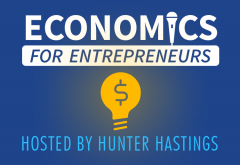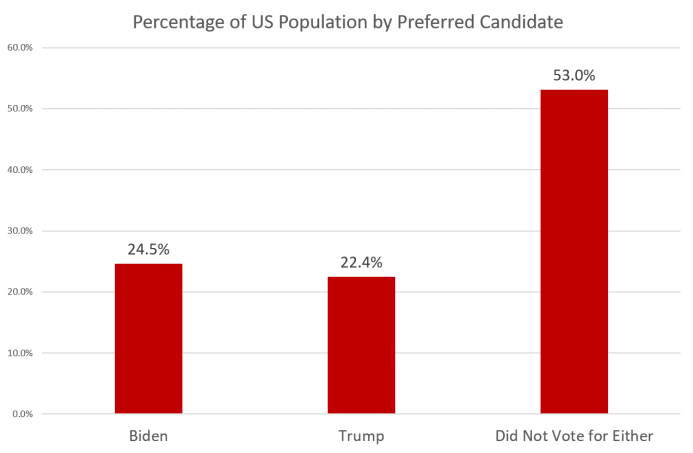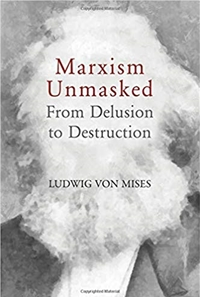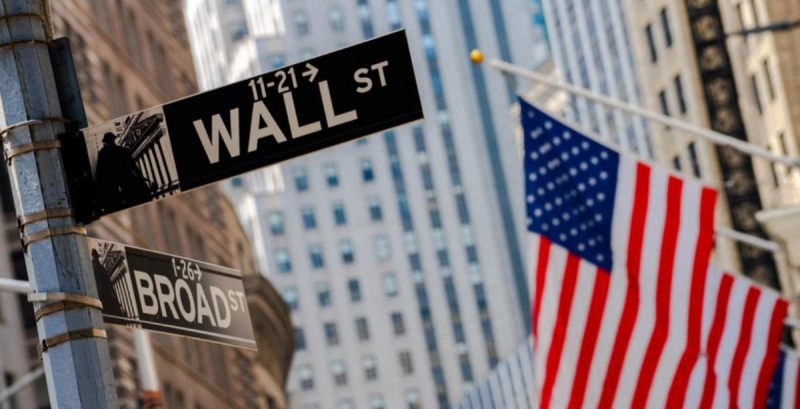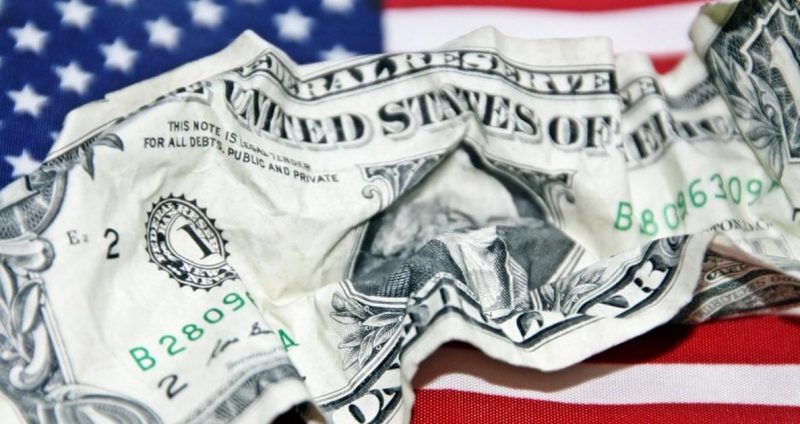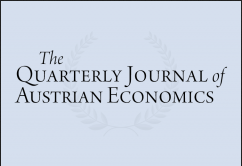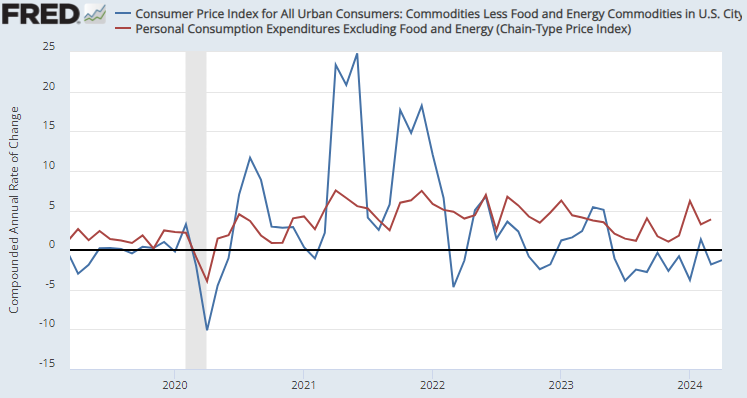Category Archive: 6b.) Mises.org
2021: Predictions for the New Year
There's no reason to assume 2021 will bring a reversal of 2020's trends. Many of the fights that began in 2020 are likely to intensify in the new year.
Be sure to follow Radio Rothbard at Mises.org/RadioRothbard.
Read More »
Read More »
The Problem with Mandatory “Socially Responsible Investing”
The term environmental social governance (ESG) investing is relatively new. As described in Forbes, [An] approach that is slowly on the rise is ESG activism, where an activist fund will take a position in the security of a company with the aim of campaigning to make its business better in terms of governance, less environmentally unfriendly and more socially responsible.
Read More »
Read More »
Why the Marketplace Is Not a Zero-Sum Game
Twenty-twenty marks the twenty-fifth anniversary of a book that has had an expanding influence on the public conversation about market competition. Robert Frank and Philip Cook’s 1995 The Winner-Take-All Society argued that there are an increasing number of markets in which small differences in performance give rise to enormous differences in rewards.
Read More »
Read More »
How Austrian Is Your Business? Continuous Value Perception Monitoring Is One Measure.
With the development of the Austrian Business Paradigm and the Austrian Business Model, and tools such as the "Value Learning Process," businesses of all kinds can utilize the deep insights of Austrian economics to further enhance how they facilitate value for their customers.
Read More »
Read More »
Rich Millennials Plot the End of Civilization
The New York Times managed to find some young people whose silver spoons provide a sour taste in their mouths. To hear them talk, their good fortune is making them sick.
Read More »
Read More »
Pelosi’s “Mandate”: What “Consent of the Governed” Really Means
The 2020 election failed to live up to the projections of many pollsters and Democratic strategists. The predicted landslide failed to materialize, and the Democrats lost seats in the House. This means in 2022 the Democrats will be defending a razor-thin majority in the House—a majority they’re almost certain to lose in a mid-term election if Biden is the final victor.
Read More »
Read More »
Feudalism and Cronyism in Machiavelli’s Italy
Although liberty is a recurring concern in Machiavelli’s writings, there is no consensus regarding either the definition of the concept or its relevance for his overall political thought.
Read More »
Read More »
Mises Explains the Santa Claus Principle
The idea underlying all interventionist policies is that the higher income and wealth of the more affluent part of the population is a fund which can be freely used for the improvement of the conditions of the less prosperous. The essence of the interventionist policy is to take from one group to give to another. It is confiscation and distribution. Every measure is ultimately justified by declaring that it is fair to curb the rich for the benefit...
Read More »
Read More »
The American Revolution Was a Culture War
Two hundred and forty-seven years ago this month, a group of American opponents of the Crown's tax policy donned disguises and set about methodically destroying a shipment of tea imported into Boston by the East India Company. The vandals trespassed on privately owned ships in Boston Harbor and threw the tea into the ocean.
Read More »
Read More »
Individualism and the Industrial Revolution
Liberals stressed the importance of the individual. The 19th-century liberals already considered the development of the individual the most important thing. "Individual and individualism" was the progressive and liberal slogan. Reactionaries had already attacked this position at the beginning of the 19th century.
Read More »
Read More »
What Is the Great Reset? Part I: Reduced Expectations and Bio-techno-feudalism
The Great Reset is on everyone’s mind, whether everyone knows it or not. It is presaged by the measures undertaken by states across the world in response to the covid-19 crisis. (I mean by “crisis” not the so-called pandemic itself, but the responses to a novel virus called SARS-2 and the impact of the responses on social and economic conditions.)
Read More »
Read More »
It Should Shock Us That There’s Any Consumer Price Inflation at All
Thanks to lockdowns, high unemployment, and general uncertainty and fear over covid-19, the personal saving rate in the United States in October was 13.6 percent, the highest since the mid-1970s. This is down from April’s rate of 33.7 percent, which was the highest saving rate recorded since the Second World War.
Read More »
Read More »
Trump’s NDAA Veto Threat Should Force a Conversation on Defense Spending
A dirty secret of congressional military spending is that when the government allocates billions in spending, unnecessary, wasteful, and parochial interests quickly find their way into the legislation.
Original Article: "Trump’s NDAA Veto Threat Should Force a Conversation on Defense Spending".
This Audio Mises Wire is generously sponsored by Christopher Condon. Narrated by Michael Stack.
Read More »
Read More »
Episode 511: ‘The Imposers and the Imposed Upon’ w/ Jeff Deist
Jeff Deist is the president of the Mises Institute in Auburn, Alabama and former chief of staff to congressman Ron Paul.
Read More »
Read More »
The US Money Supply Was up 37 Percent in November
In November, money supply growth rate was essentially unchanged from October and remains near September's all-time high. The stabilization we find in money-supply growth in recent months comes after eight months of record-breaking growth in the US which came in the wake of unprecedented quantitative easing, central bank asset purchases, and various stimulus packages.
Read More »
Read More »
Entrepreneurial Empowerment: You Are Only as Good as Your Employees
As employees are increasingly recognized as an important source of ideas and inspiration, contemporary leadership research finds that the central task of leaders is to empower employees to realize their skills and talents to achieve an organizations’ visions and goals.
Read More »
Read More »
What “Capitalism” Really Means
Descriptive terms which people use are often quite misleading. In talking about modern captains of industry and leaders of big business, for instance, they call a man a "chocolate king" or a "cotton king" or an "automobile king."
Read More »
Read More »
New Lockdowns and More Regulations Are Disastrous for US Jobs
United States jobless claims have picked up, since the elections and the second wave of coronavirus have slowed down the economic recovery. Uncertainty about tax increases and changes in labor laws, including an increase in the minimum wage, add to the fear of new lockdowns, as employers see the devastating effects of these lockdowns in European employment.
Read More »
Read More »
Why the Electoral College Matters
We begin to understand the electoral college when we admit the United States is really supposed to be a collection of member states, and not a single unified nation. Abolishing the EC is likely to worsen national conflict and disunity.
Read More »
Read More »
The Skyscraper Curse: And How Austrian Economists Predicted Every Major Economic Crisis of the Last Century
The Skyscraper Curse: And How Austrian Economists Predicted Every Major Economic Crisis of the Last Centuryby Mark ThorntonAuburn, Ala.: Ludwig von Mises Institute, 2018. Michael Novak ([email protected]) is a Ph.D. student in entrepreneurship at Oklahoma State University. He also holds an MBA from the University of Wisconsin-Whitewater.
Read More »
Read More »












